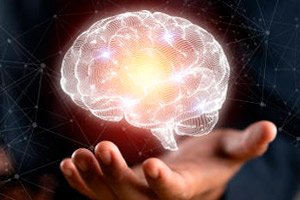
All iLive content is medically reviewed or fact checked to ensure as much factual accuracy as possible.
We have strict sourcing guidelines and only link to reputable media sites, academic research institutions and, whenever possible, medically peer reviewed studies. Note that the numbers in parentheses ([1], [2], etc.) are clickable links to these studies.
If you feel that any of our content is inaccurate, out-of-date, or otherwise questionable, please select it and press Ctrl + Enter.
Brain could be target for new treatments for type 1 diabetes
Last reviewed: 09.08.2025

More than a decade ago, researchers discovered that an acute complication of type 1 diabetes, diabetic ketoacidosis (DKA), could be reversed with the hormone leptin, even in the absence of insulin.
A paper published in the Journal of Clinical Investigation explains how leptin affects the brain and how it could be used in future therapeutic approaches.
DKA occurs when the body is unable to produce insulin and begins to break down fats for energy. This can lead to a life-threatening buildup of sugar (glucose) and ketocides in the blood. Doctors traditionally administer insulin to treat DKA, the authors note.
But there is now evidence that when there is a lack of insulin, the brain plays a key role in the development of DKA, according to a new analysis based on a literature review and research conducted at UW Medicine since 2011.
"When the pancreas can't make insulin, the brain gets a signal that the body is running out of fuel, even if it isn't. This information is conveyed in part by low levels of the hormone leptin in the blood," said senior author Dr. Michael Schwartz, professor of medicine and division of metabolism, endocrinology, and nutrition at the University of Washington School of Medicine.
Leptin helps the brain regulate appetite and body weight. The hormone is produced by fat cells and travels through the bloodstream to the brain, particularly the hypothalamus, the area that controls when and how much to eat. When leptin is low, the brain activates pathways to mobilize energy reserves, including glucose and ketones.
Schwartz and his team discovered this connection in 2011, when they first injected leptin directly into the brains of rats and mice with type 1 diabetes. At first, nothing happened. But after four days, the researchers were amazed to see that the animals’ blood glucose and ketone levels had completely returned to normal, despite their continued severe insulin deficiency.
"The most amazing thing is that the sugar level did not just go down, it remained stable," he explained. "If they tried to raise it, it went down again; if they tried to lower it, it went up again."
Such responses suggested that the brain could maintain normal blood sugar levels even in the absence of insulin, Schwartz noted.
At the time, the scientific community of diabetes experts did not know what to think about this discovery.
"We now have a much better understanding of a phenomenon that was largely ignored in 2011," Schwartz said.
He plans to apply to the FDA for permission to conduct clinical trials of leptin in people with type 1 diabetes to test whether the hormone can normalize blood sugar levels in patients.
Positive results could pave the way for brain-targeted drugs for type 1 diabetes.
"This is one of the most exciting discoveries of my career," said co-author Dr. Irl Hirsch, chair of the Department of Diabetes Care and Education at UW Medicine and professor of metabolism, endocrinology and nutrition at the University of Washington School of Medicine.
Controlling glucose levels with leptin could open up new treatment options for patients, Hirsch said.
"Don't get me wrong: The discovery of insulin 104 years ago was one of the great discoveries of the last century," he added, "but this is the next step. It may be the best way."
Schwartz emphasized that insulin management is a significant burden for patients and their families.
"If it were possible to treat type 1 diabetes without daily insulin injections and constant sugar monitoring, patients would consider it a great achievement," he said.
By convincing the brain that fuel reserves are not depleted, or by turning off specific neurons that trigger glucose and ketone production, the body stops the reaction that leads to severe hyperglycemia and DKA.
"This new concept challenges the long-held view that insulin deficiency is the sole cause of diabetic ketoacidosis, which has been accepted for decades," Schwartz said.
"It shows that the brain plays a powerful role in the development of uncontrolled diabetes and may be the key to new treatments."
